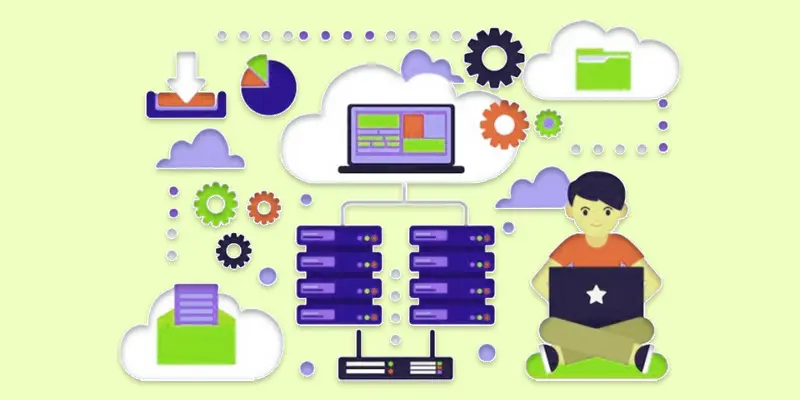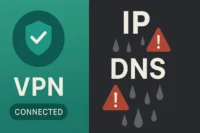Cloud Computing Skill | Learn the Basics Fast
Published: 25 May 2025
Essential Cloud Computing Skills for Beginners
Cloud computing is powering over 90% of businesses today, but do you really know which cloud computing skills you need to stay relevant? Many beginners feel lost when they hear terms like AWS, DevOps, or virtualization. If you’re struggling to start a tech career or switch roles, learning cloud computing skills can open big doors. Imagine building your own app in the cloud. The journey begins with just one skill.
What Are Cloud Computing Skills
Cloud computing skills are the abilities you need to work with cloud-based tools and services. These include using platforms like AWS or Google Cloud, storing data online, and keeping systems secure. They’re helpful for tech jobs and modern businesses.
Cloud Computing Skills list for resume
Core cloud computing skills are the basic things you need to learn to work with cloud systems and build a strong tech career.
- Cloud Platforms (AWS, Azure, Google Cloud)
- Networking Basics
- Virtualization & Operating Systems
- Cloud Storage & Databases
- Security & Compliance
- DevOps & Automation
- Monitoring & Troubleshooting
- Scripting & Basic Programming
- Cloud Architecture Basics
- Backup & Disaster Recovery

Cloud Platforms
Cloud platforms like AWS, Azure, and Google Cloud let you run apps, store data, and use tools online without needing your own servers. They make it easy to scale and manage everything from websites to big business systems.
Example: You can host your personal blog on AWS using its free tier services.
Networking Basics
Networking basics help you understand how computers talk to each other in the cloud. You learn about things like IP addresses, firewalls, and how data moves safely.
Example: When you connect a website to a database, networking helps them share information smoothly.
Virtualization & Operating Systems
Virtualization lets you run many virtual computers inside one real computer, saving space and cost. Operating systems like Linux help manage these virtual machines in the cloud.
Example: A company can use virtualization to run multiple Linux servers on one physical machine in AWS.
Cloud Storage & Databases
Cloud storage lets you save files and data online, so you can access them anytime from anywhere. Databases in the cloud help organize and manage large amounts of information quickly and safely.
Example: You can store photos in cloud storage like Amazon S3 and use a database like AWS RDS to keep track of user details.
Security & Compliance
Security and compliance mean keeping cloud data safe and following rules to protect privacy. This includes using passwords, encryption, and monitoring for threats.
Example: A company uses encryption to protect customer information stored on Microsoft Azure, keeping it safe from hackers.
DevOps & Automation
DevOps combines development and operations to help teams build and deliver cloud apps faster. Automation uses tools to do tasks automatically, saving time and reducing errors.
Example: Using tools like Docker and Jenkins, a team can automatically test and launch updates to a cloud app without manual work.
Monitoring & Troubleshooting
Monitoring means watching cloud systems to make sure they run smoothly. Troubleshooting is finding and fixing problems quickly to avoid downtime.
Example: Using AWS CloudWatch, you can track your website’s performance and fix issues if it slows down or stops working.
Scripting & Basic Programming
Scripting and basic programming help automate cloud tasks by writing simple code. This makes managing cloud services faster and easier.
Example: Writing a Python script to automatically back up files to Google Cloud Storage every day.
Cloud Architecture Basics
Cloud architecture basics teach how to design and organize cloud systems for the best performance and cost. It helps build reliable and scalable apps.
Example: Designing a website to use multiple servers in different regions so it stays fast even during heavy traffic.
Backup & Disaster Recovery
Backup and disaster recovery mean saving copies of data and having a plan to restore it if something goes wrong. This keeps your information safe during crashes or attacks.
Example: A business uses cloud backup to save all files on AWS and quickly restores them if their computer system fails.
| How to Start Learning Cloud Computing |
|---|
|
Here’s how to start learning cloud computing in simple steps:
|
Here’s a simple overview of career opportunities with cloud skills:
- Cloud Engineer: Builds and manages cloud systems.
- Cloud Administrator: Keeps cloud services running smoothly.
- DevOps Engineer: Automates and improves software delivery.
- Cloud Security Specialist: Protects data and cloud networks.
- Data Engineer: Manages data storage and processing in the cloud.
- Cloud Consultant: Helps businesses choose and use cloud services.
Soft skills help cloud professionals work well with others and solve problems, which is just as important as technical know-how.
- Good problem-solving
- Clear communication
- Teamwork and collaboration
- Time management
- Adaptability to change
- Willingness to learn
- Attention to detail
- Customer-focused mindset
- Good problem-solving: Finds smart answers to problems quickly.
- Clear communication: Share ideas in a simple, easy way.
- Teamwork and collaboration: Works well with others to reach goals.
- Time management: Uses time wisely to finish tasks on time.
- Adaptability to change: Learn and adjust when things are different.
- Willingness to learn: Always ready to gain new knowledge.
- Attention to detail: Notices small things to avoid mistakes.
- Customer-focused mindset: Cares about helping customers succeed.

Conclusion About Cloud Computing Skills Required for Cloud Engineers
The above sentence highlights the growing importance of top skills in cloud computing in today’s job market. I personally recommend investing time in learning these skills through online courses or hands-on projects to stay competitive. Don’t wait to start building your cloud computing skills today and open the door to exciting career opportunities.
FAQS
A skills cloud shows a list or map of skills someone has or needs. It helps to understand what skills are important.
Yes, cloud is a technical skill because it involves working with computers and internet systems.
Yes, cloud computing is a hard skill. It requires specific knowledge and training.
The best skill to learn depends on your goals, but cloud computing is very useful today.
Tech skills like cloud computing, AI, and cybersecurity are often the highest paid.
Cloud computing skills are in high demand because many companies use cloud technology.

- Be Respectful
- Stay Relevant
- Stay Positive
- True Feedback
- Encourage Discussion
- Avoid Spamming
- No Fake News
- Don't Copy-Paste
- No Personal Attacks

- Be Respectful
- Stay Relevant
- Stay Positive
- True Feedback
- Encourage Discussion
- Avoid Spamming
- No Fake News
- Don't Copy-Paste
- No Personal Attacks





